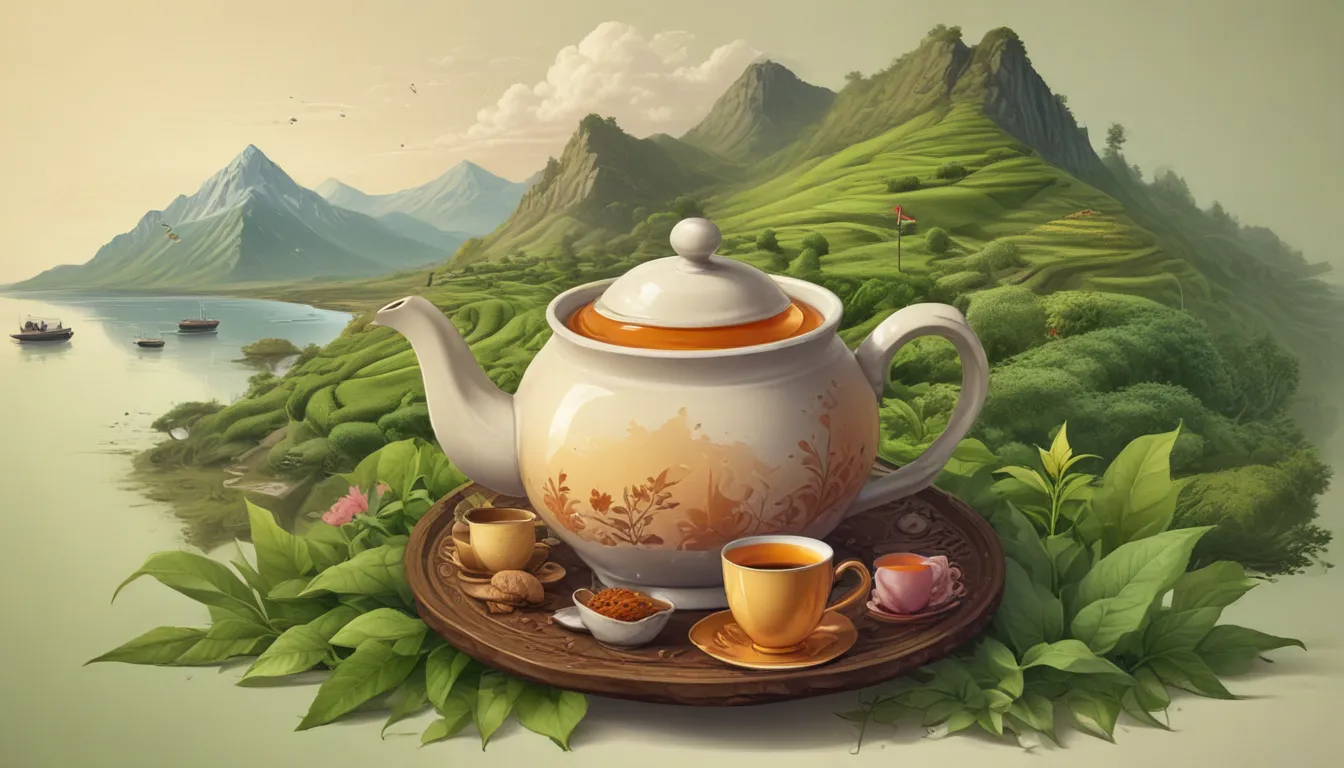The pictures in our articles might not always show exactly what the text is talking about. We use these images to make the article more interesting and eye-catching. They are there to add to the text, but not to replace it or show every detail.
Tea, a delightful beverage enjoyed worldwide, has a rich history steeped in tradition and culture. From its origins as a medicinal drink in ancient China to its global popularity today, tea has captured the hearts of many with its soothing qualities and diverse flavors. In this article, we will explore 15 intriguing facts about tea that will not only enlighten you but also deepen your appreciation for this remarkable drink. So, grab a cup of tea, relax, and let's embark on a journey through the captivating world of tea.
The Global Love Affair with Tea
- Tea is the second most consumed beverage globally, following water. This centuries-old drink has been a beloved choice for many cultures around the world, with its origins tracing back to ancient China.
- There are four main types of tea: black, green, oolong, and white. Each type undergoes a unique level of oxidation and processing, resulting in distinct flavors and characteristics that cater to different tastes.
- The tea plant, Camellia sinensis, is native to Asia and thrives in countries like China, India, Sri Lanka, and Japan, where ideal climate and soil conditions support its growth.
- Herbal teas, though often labeled as teas, are technically not teas. Instead, they are infusions made from plant materials like chamomile and peppermint, offering a variety of flavors and health benefits.
Health Benefits of Tea
- Tea is rich in antioxidants that help protect the body against free radicals, contributing to overall health and potentially preventing various diseases.
- The caffeine content in tea varies, with black tea generally containing the highest amount followed by oolong, green, and white teas. Factors such as brewing time and water temperature can influence caffeine levels.
- Tea is often associated with relaxation and mindfulness, offering a comforting experience that many people cherish as a daily ritual.
Tea Culture and Traditions
- The temperature and steeping time significantly impact the taste of tea. With specific requirements for different types of teas, it's essential to steep tea correctly to avoid bitterness and enjoy its optimal flavor.
- Matcha, a powdered green tea, plays a central role in Japanese tea ceremonies. It is prepared by grinding specially processed green tea leaves into a fine powder and whisking it with hot water to create a frothy, vibrant beverage.
- Teabags, a convenient invention of the early 20th century, revolutionized the way people brewed and enjoyed tea, offering a mess-free alternative to traditional loose leaf tea.
Tea and Wellness
- Tea has long been recognized for its medicinal properties, offering natural remedies for various ailments such as boosting the immune system, aiding digestion, and soothing a sore throat.
- The United Kingdom holds the title for the highest tea consumption per capita, with tea deeply ingrained in British culture and traditions.
Versatile Enjoyment of Tea
- Tea can be savored in a multitude of ways, from classic hot tea to trendy options like iced tea, bubble tea, and tea lattes, allowing for creativity and personalization in how it is enjoyed.
In conclusion, tea is more than just a beverage; it's a journey through history, culture, and wellness. From ancient origins to modern-day popularity, tea continues to captivate and comfort tea lovers worldwide. So, the next time you sip on your favorite brew, take a moment to appreciate the fascinating facts and rich traditions behind this beloved drink.
FAQs
- How is tea made? Tea is crafted from the leaves of the Camellia sinensis plant through a process of harvesting, withering, and various methods of steaming, fermenting, or drying, resulting in different types of tea.
- What are the different types of tea? Tea comes in various types such as black, green, oolong, white, and herbal teas, each offering unique flavors and health benefits.
- What are the health benefits of tea? Tea is packed with antioxidants that can promote overall health, boost the immune system, improve heart health, aid in weight loss, and enhance mental alertness.
- How much caffeine does tea contain? The caffeine content in tea varies by type and brewing method, with black tea typically having higher levels than green tea, while herbal teas are caffeine-free.
- Can tea help with relaxation and sleep? Some herbal teas like chamomile and lavender are known for their calming effects and can aid in relaxation and improving sleep quality.
Our commitment to providing accurate and engaging content ensures that each fact we share is both fascinating and credible. Explore and learn with confidence, knowing that our content is curated by real users and meticulously reviewed by expert editors. Enjoy the world of tea and its amazing benefits as you steep yourself in its rich traditions and flavors.






